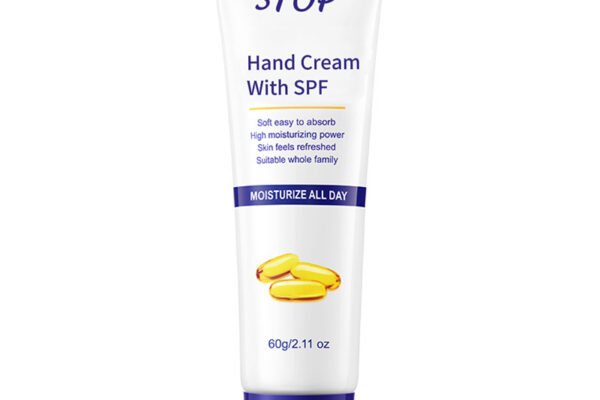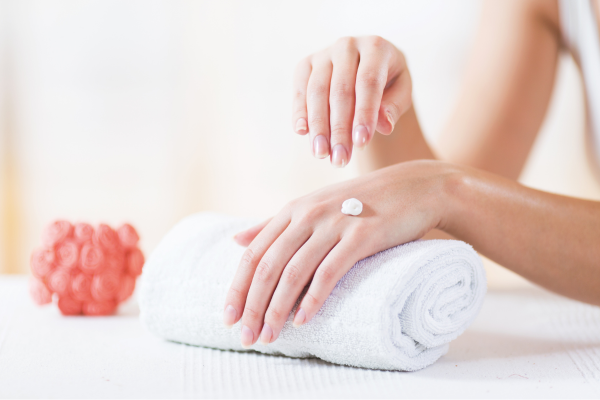Koska halal-sertifiointi ulottuu elintarvikkeiden lisäksi myös henkilökohtaiseen hygieniaan, suutuotteet, kuten suuvesi, ovat tulossa keskeiseksi kuluttajien kiinnostuksen kohteeksi. Halal-suuvesien kysyntä kasvaa, kun kuluttajat ovat tietoisempia käyttämiensä tuotteiden ainesosista.
Aluksi halal-sertifiointi mahdollisti pääsyn muslimienemmistöisille markkinoille. Muslimien määrän kasvaessa diasporassa jopa suuvesien valmistajat ovat alkaneet hakea halal-sertifiointia.
Mitä 'halal' sitten tarkoittaa ja miten saat tuotteestasi halal-sertifioidun? Tässä on vaiheittainen opas halal-suuvesisertifikaatin hankkimiseen, selittäen miksi se on tärkeää ja mitä haasteita prosessin aikana voi esiintyä.
Mitä "halal" tarkoittaa henkilökohtaisen hygienian tuotteissa?
Sana halal on arabiaa ja tarkoittaa "sallittua tai puhtaana pidettyä". Koraani sanelee, mitä ihmiskunnan tulisi syödä (halal), ja kieltää tietyt aineet kokonaan tai niiden valmistustavan vuoksi.
Kiellettyjä ruokia ja aineita pidetään haram-aineina. Haram-aineiden nauttiminen on islamin opetusten vastaista. Halal-ruokavaliolakia noudattavat muslimiostajat välttävät ehdottomasti kaikkia tuotteita, jotka sisältävät haram-aineita tai joiden valmistustavat ovat epäselviä.
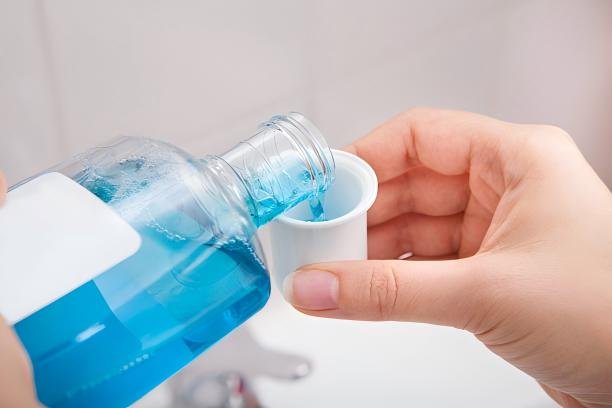
Halalin määritelmä kosmetiikan ja suunhoidon yhteydessä
Halal-henkilökohtaisen hygienian tuotteissa käytetään vain islamilaisten ruokavaliolakien sallimia aineita. Se osoittaa myös, että valmistaja noudattaa halal-tuotantomenetelmiä, jotka varmistavat, että tuote on vapaa haram-aineiden aiheuttamasta kontaminaatiosta.
Halal vs. Haram -suuvesituotteet
| Halal-sertifioitu suuvesi | Haram-suuvesi |
Ainesosat | Käyttää vain halal-sallittuja aineita; ei sisällä alkoholia eikä kiellettyjä eläinperäisiä tuotteita. | Saattaa sisältää alkoholia, gelatiinia, glyseriiniä tai haram-lähteistä peräisin olevia eläinperäisiä ainesosia. |
Valmistusprosessi | Valmistettu laitoksessa, joka estää ristikontaminaation haram-aineiden kanssa. | Kiellettyjen aineiden kontaminaatioriski sekakäyttöisten tilojen vuoksi. |
Markkinoiden ulottuvuus | Vetoo muslimikuluttajiin maailmanlaajuisesti ja on tervetullut halal-tietoisilla markkinoilla. | Ei välttämättä hyväksytä muslimienemmistöisillä alueilla tai halal-tietoisten kuluttajien keskuudessa. |
Kuluttajien valitus | Myös ei-muslimikuluttajien suosima eettisten, vegaanisten ja luonnollisista ainesosista valmistettujen vaihtoehtojen ansiosta. | Saattaa puuttua läpinäkyvyyttä hankinnoissa ja eettisissä näkökohdissa. |
Halal-sertifioinnin merkitys muslimikuluttajille
Halal-sertifioinnin merkitys muslimikuluttajille on se, että se varmistaa heille eettisen tuotannon ja poistaa mahdolliset huonot tunteet tuotetta käytettäessä. Muslimit, jotka noudattavat tiukasti halal-käytäntöjä, eivät todennäköisesti osta henkilökohtaisen hygienian tuotteita, jotka sisältävät haram-ainetta.
Vaiheittainen halal-suuveden sertifiointiprosessi
Halal-sertifiointi on merkki sharia-lain noudattamisesta ja varmistaa, että suuvesi ei sisällä haram-ainesosia. Se avaa ovia muslimikuluttajille, jotka etsivät halal-sertifioituja tuotteita uskonnollisista ja eettisistä syistä. Myös muut kuin muslimit yhdistävät halal-sertifioinnin korkeaan laatuun ja läpinäkyvyyteen.
Menettely on sama kuin halal-kosmetiikkasertifiointiprosessissa. Tässä ovat Suuveden halal-sertifiointiprosessin vaiheet:
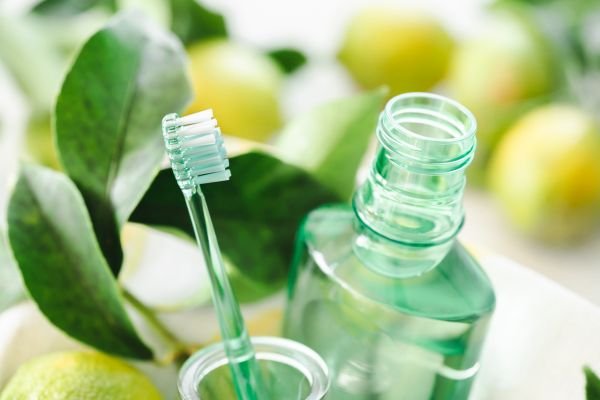
1. Ainesosien hankinta
Kielletyt (haram) vs. sallitut (halal) aineet
Sinun on varmistettava, että suuvedessäsi käytetään halal-ainesosia. Ainesosien ei tule olla ainoastaan halal-sertifioituja, vaan niiden on tultava halal-yhteensopivilta toimittajilta. Myös materiaalien käsittelyssä toimituksen, varastoinnin ja prosessoinnin aikana on noudatettava halal-ohjeita. Vältä haram-aineita, kuten alkoholia, sianlihatuotteita, verta tai ainesosia, jotka ovat peräisin ennen teurastusta kuolleista eläimistä.
Yleisiä suunhoidon huolenaiheita (esim. alkoholi, gelatiini, glyseriini)
Alkoholi, gelatiini ja glyseriini ovat yleisiä ainesosia suuvesissä. Alkoholin käyttö on ehdottomasti kielletty. Kasviperäistä glyseriiniä ja gelatiinia pidetään kuitenkin yleensä halal-tuotteina. Jos käytät eläinperäistä gelatiinia tai glyseriiniä, sinun on varmistettava, ettei se ole peräisin sianlihasta tai sharian säännösten vastaisesti teurastetuista eläimistä.
Toimittajien ja raaka-aineiden dokumentaation varmentaminen
Kun valitset suuveden raaka-aineiden toimittajia, sinun on varmistettava, että he noudattavat halal GMP -standardeja. Suunhoitotuotteiden halal-yhteensopivuus edellyttää, että ainesosat ovat vapaita kaikesta kontaminaatiosta. Toimittajan on myös oltava halukas toimittamaan tarvittavat raaka-aineasiakirjat tarkastuksia varten.
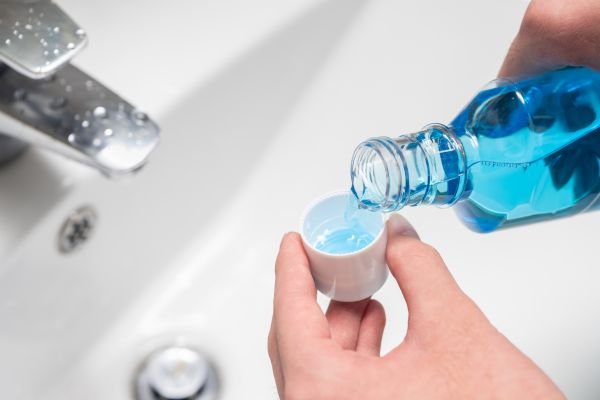
2. Valmistusprosessin tarkastelu
Saadakseen suuveden halal-sertifioinnin tarkastajien on varmennettava valmistusprosessi. Suun hygienian halal-vaatimustenmukaisuus edellyttää valmistusprosessin tarkastelua, jonka kohteena ovat:
Laitteiden desinfiointi ja ristikontaminaation ehkäisy
Sinun on käytettävä sallittuja desinfiointiaineita ja määriteltävä menettelytavat desinfiointiprosessien aikana. Halal-hygieniatuotteiden hyväksyntä edellyttää korkeaa puhtaustasoa ristikontaminaation estämiseksi.
Omistetut tuotantolinjat tai perusteelliset puhdistusprotokollat
Jos valmistat useita tuotteita, jotka sisältävät haram-aineita, tarvitset erilliset tuotantolinjat. Sinun on myös ylläpidettävä perusteellisia puhdistusprotokollia jaetuille laitteille ja käsittelylinjoille varmistaaksesi nollakontaminaatiotason.
Halal-hyvien tuotantotapojen (GMP) noudattaminen
Auditoijat tarkistavat myös halal-hyvien tuotantotapojen (GMP) noudattamisen. GMP on vakiovaatimus lääke- ja valmistusaloilla. Halal-sertifiointi vaatii kuitenkin enemmän, kuten henkilöstön koulutusta halal-vaatimuksista ja nollakontaminaation varmistamisen.
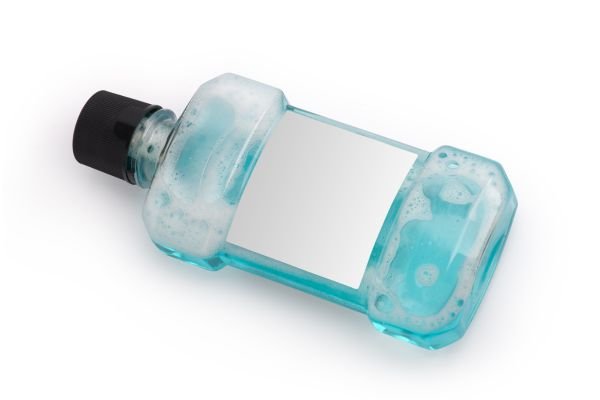
3. Pakkaus- ja merkintävaatimustenmukaisuus
Kun olet läpäissyt materiaalin ja halal-kosmetiikan valmistusprosessin tarkastuksen, sinun on myös noudatettava halal-suuveden pakkauksessa asetettuja vaatimuksia. Pakkausmateriaali, käytetyt säilöntäaineet ja lopputuotteen käsittely ovat ratkaisevan tärkeitä halal-sertifioinnissa.
Hyväksytyt pakkausmateriaalit
Sinun on käytettävä pakkausmateriaaleja, jotka eivät saastuta halal-suuvettäsi. Jotkin suuveden pakkausmateriaaleista saattavat sisältää kiellettyjä aineita tai ne voivat olla peräisin ympäristöstä, joka ei noudata halal-ohjeita.
Etikettivaatimukset
Suuveden etiketissä on oltava sertifikaatin myöntäneen sertifiointilaitoksen halal-logo. Jotkut sertifiointilaitokset ovat tunnustetumpia kuin toiset. Etiketissä tulee olla myös muita olennaisia tietoja tuotteen ainesosista ja erätiedoista.
Läpinäkyvyys tuotteen koostumuksessa
Varmista, että halal-suuvesituotteesi etiketissä on selkeät tiedot käytetyistä ainesosista. Jos tuotteen koostumuksen tarkempi analyysi paljastaa haram-aineiden saastumisen, saatat menettää sertifikaatin. Lisäksi se on vastoin muslimien uskoa.
4. Kolmannen osapuolen auditoinnit ja tarkastukset
Hakemusprosessin aikana ja halal-suuvesisertifikaatin saamisen jälkeen sinulle tehdään kolmannen osapuolen auditointeja ja tarkastuksia.
Halal-sertifiointielinten rooli
Halal-sertifiointielimiä on useita, joista osa on aluekohtaisia, kun taas toiset ovat maailmanlaajuisesti tunnustettuja. Niiden tehtävänä on varmistaa, että valmistajat noudattavat halal-hyviä tuotantotapoja.
Isossa-Britanniassa ja Yhdysvalloissa tunnustetut johtavat kosmetiikan halal-sertifiointilaitokset ovat JAKIM, IFANCAja HCA. Heidän logonsa suuvedessä antaa tuotteelle kilpailuedun länsimaisilla markkinoilla.
Paikan päällä tehtävät tarkastukset ja dokumentaation tarkastus
Valitsemastasi sertifiointilaitoksesta riippumatta sen on suoritettava paikan päällä tapahtuva tarkastus sertifiointiprosessin aikana. Tarkastajat suorittavat myös dokumentaation tarkastelun varmistaakseen hakemuksessa annettujen tietojen oikeellisuuden.
Sinun on vastattava tarkastus- ja auditointikustannuksista, joihin sisältyvät tarkastajien ja tilintarkastajien kuljetus ja muut heille prosessin aikana aiheutuvat satunnaiset kulut.
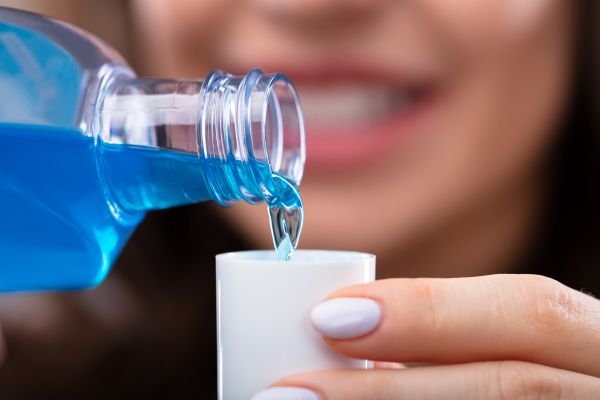
Auditointien ja uudelleensertifioinnin tiheys
Varaudu paikan päällä tehtäviin auditointeihin ja tarkastuksiin halal-suuvesien sertifiointiprosessin aikana. Lisäksi vuosittaisia tai puolivuosittaisia auditointeja suoritetaan sertifiointistatuksen säilyttämisen varmistamiseksi. Jotkut tahot voivat suorittaa ilmoittamattomia pistokokeita vaatimustenmukaisuuden varmistamiseksi.
5. Lopullinen sertifiointi ja markkinoille saattaminen
Hyväksynnän jälkeen sertifiointilaitos myöntää sinulle todistuksen ja luvan käyttää sertifikaattilogoa. Sinun on esiteltävä sertifikaattilogo ylpeänä houkutellaksesi muslimikuluttajia, jotka etsivät halal-logoa ostoksilla.
Halal-sertifikaatin voimassaoloaika voi vaihdella myöntäjästä riippuen. Kansainväliset halal-sertifiointielimet myöntävät kuitenkin yleensä kolmen vuoden voimassaoloajan lääke-, OEM- ja kosmetiikkatuotteille.
Kun saat halal-suuvesisertifikaatin, se voi tarjota myös pääsyn halal-sertifioitujen tuotteiden tietokantoihin. Jotkut tahot saattavat kuitenkin vaatia tietyn määrän vuosia, ennen kuin tuote voidaan sertifioida halaliksi tai lisätä halal-sertifioitujen tuotteiden tietokantaan.
Tietokanta avaa ovia tuotteellesi, mukaan lukien muslimihallitusten ja -järjestöjen tunnustus sekä tarjouskilpailut.
Miksi halal-sertifiointi on tärkeää suunhoitoalalla
Käytämme suunhoitotuotteita suoraan suuhygieniassamme. Tieto siitä, että käyttämäsi tuote ei sisällä kiellettyjä aineita, antaa sinulle mielenrauhan. Halal-sertifiointi kosmetiikassa ja henkilökohtaisen hygienian tuotteissa ei ainoastaan takaa kuluttajille koostumuksen ainesosien paikkansapitävyyttä, vaan myös osoittaa korkeampia eettisiä standardeja.
Tässä on joitakin keskeisiä syitä, miksi halal-sertifiointi on elintärkeää suunhoitoalalla.
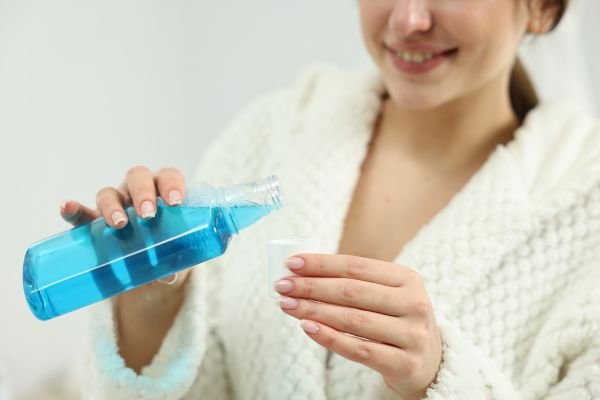
Kuluttajien luottamus ja markkinoiden kysyntä
Kun tuotteessasi on halal-sertifiointilogo, rakennat kuluttajien luottamusta. Muslimeille sopivien suunhoitotuotteiden, kuten halal-suuveden, luominen auttaa tavoittamaan laajemman markkinan. Halal-sertifiointi auttaa tavoittamaan muslimienemmistöiset markkinat sekä diasporassa että ulkomailla.
Myös ei-muslimit omaksuvat halal-suunhoitotuotteita. Kuluttajien tutustuessa halal-sertifiointiin he yhdistävät sen etiikkaan ja hyviin tuotantotapoihin, mikä rakentaa luottamusta.
Globaalit halal-kosmetiikkamarkkinoiden trendit
Globaalit halal-kosmetiikkamarkkinatrendit osoittavat positiivista kasvua. Länsimaissa muslimiväestö on kasvussa, ja halal-sertifiointi antaa tuotteellesi kilpailuedun.
Lähi-idässä ja Aasiassa keskiluokan väestö kasvaa. Väestönkasvu ja käytettävissä olevien tulojen nousu viittaavat markkinoiden laajempaan kapasiteettiin.
Eettiset ja puhtaan tuotemerkinnän edut
Internet ja koulutusalan globaali kasvu ovat tehneet tiedon saatavuudesta helppoa. Ihmiset ovat yhä tietoisempia käytetyistä ainesosista ja heistä on tullut valikoivampia. He ovat jopa tarkkaavaisia valmistusmenetelmien suhteen.
Halal-sertifiointi, joka liittyy tiukkoihin muslimien ruokavaliolakeihin, osoittaa korkeampaa eettistä tasoa. Teknisten, hygieniaan ja ristikontaminaation vähentämiseen liittyvien vaatimusten vuoksi monet ihmiset etsivät halal-sertifioitua suuvettä puhtaana vaihtoehtona.
Halal-suuvesien sertifioinnin haasteet
Jotkut yrittäjät saattavat kohdata haasteita halal-sertifioitujen suuvesien kanssa. Perinteiset suuvedet käyttävät ainesosia, menetelmiä ja järjestelmiä, jotka ovat haram. Halal-logomerkintävaatimusten suurimmat vaikeudet ovat:
Alkoholipohjaiset ainesosat perinteisissä koostumuksissa
Useimmat perinteiset suuvedet sisältävät alkoholia ainesosana. Alkoholi, sekä itse valmisteen aineena että muihin tarkoituksiin valmistuslinjalla käytettynä, saastuttaa suuvesituotteesi.
Monet suuvedet eivät kuitenkaan sisällä alkoholia. Voit etsiä alkoholittoman suuveden tai jopa sellaisen, joka sisältää muita luonnollisia halal-aineita.
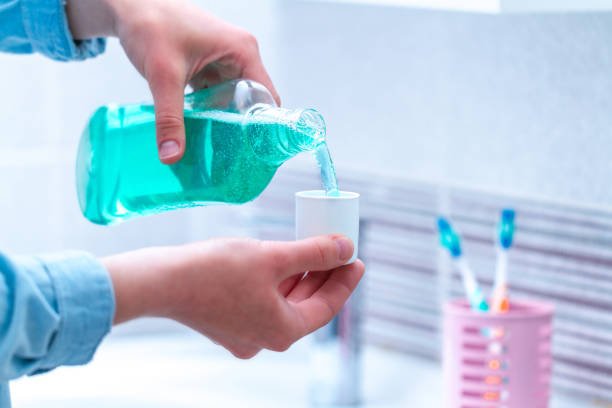
Vaikeuksia hankkia halal-yhteensopivaa glyseriiniä tai aromeja
Glyseriini on monipuolinen ainesosa, jota käytetään monenlaisissa käyttökohteissa elintarvikkeissa, suunhoidossa, kosmetiikassa ja lääkkeissä. Onko glyseriini siis halal hammashoitotuotteissa? Glyseriiniä käytetään päivittäin suuhygieniatuotteissa makeutusaineena tai säilöntäaineena. Se on kriittinen huolenaihe muslimiyhteisön keskuudessa. Onko glyseriinin status halal? ainesosa.
Kasviperäistä glyseriiniä, joka on peräisin palmuöljystä tai soijapavuista, pidetään halal-statuksena. Eläinperäisen glyseriinin halal-status riippuu eläimen tyypistä ja sen teurastustavasta. Halal-eläimen teurastuksen on myös noudatettava islamilaista lakia. Useimmissa tapauksissa henkilökohtaisen hygienian tuotteissa käytetään kasviperäistä glyseriiniä, jota pidetään halal-statuksena. On myös synteettistä glyseriiniä ja aromeja.
Toimitusketjun jokaisen toimittajan varmentamisen monimutkaisuus
Sinulla ei välttämättä ole pääsyä kaikkiin toimittajasi toimintaa koskeviin tietoihin. Toimittajien tarkastaminen aiheuttaa kustannuksia, ja toinen osapuoli voi pitää liiallista tarkastelua epäluottamuksena. Voit kuitenkin pyytää ainesosasi jo vakiintuneelta halal-sertifioidulta ainesosatoimittajalta minimoidaksesi tarkastuskustannukset ja -ajan.
Myös ainesosien kuljettaminen toimittajalta tiloihisi on täytettävä halal-säännöt. Jos ulkoistat kuljetusyrityksen, se voi lisätä haram-tuotteiden kontaminaatioriskiä. Myös toimitusaluksen puhdistusmenettely voi aiheuttaa ristikontaminaation uhan. Sujuvan valmistusprosessin varmistamiseksi harkitse kuljetusyrityksen ulkoistamista. halal-suuveden valmistaja hankkia ainesosia ja tuottaa halal-suuvettä.
Loppusanat: Halal-eheyden varmistaminen alusta loppuun
Halal-suuvesien sertifiointiprosessin keskeisiin vaiheisiin kuuluvat ainesosien hankinta, valmistusprosessin tarkastelu, pakkaus- ja merkintävaatimusten noudattamisen varmistaminen, auditointien ja tarkastusten suorittaminen sekä lopullisen sertifikaatin hankkiminen.
Tässä on vinkkejä halal-sertifioidun suuveden valmistukseen:
- Varmista, että käytät ja hankit halal-ainesosia vaatimustenmukaisilta toimittajilta.
- Sovita valmistusprosessisi halal-standardien mukaiseksi.
- Saadaksesi halal-hygieniatuotteen hyväksynnän, varmista, että noudatat säädettyjä sanitaatio- ja puhdistusmenetelmiä.
- Pidä yllä asianmukaista dokumentaatiota varastostasi ja valmistustoiminnastasi.
- Helpottaa halal-sertifiointilaitosten, tilintarkastajien ja tarkastajien työtä.
- Varmista, että käytät halal-logoa tuotepakkauksesi etiketissä ja että ainesosat ovat läpinäkyviä.
Halal-suuvesisertifiointi ei tähtää vain muslimienemmistölle. Se osoittaa, että halal-suuvesi noudattaa eettisiä ja osallistavia tuotantostandardeja. Myös ei-muslimit omaksuvat halal-logolla varustettuja tuotteita, koska ne yhdistetään puhtauteen, läpinäkyvyyteen ja vegaanisiin ja luonnollisiin suuvesivaihtoehtoihin.
FAQ
Onko alkoholiton suuvesi automaattisesti halal?
Ei, alkoholittomat suuvedet saattavat sisältää kiellettyjä makuaineita tai muita aineita. Tehdas ei välttämättä myöskään noudata halal-hyviä valmistustapoja.
Kuinka kauan halal-suuveden sertifioinnin saaminen kestää?
Hakemuksen jättämisen ja sertifioinnin välinen aika voi vaihdella sertifiointilaitoksen, logistiikan ja vaatimustenmukaisuustasosi mukaan. Voit kuitenkin saada halal-sertifikaatin 8–12 viikon kuluessa hakemuksen jättämisestä.
Mitkä halal-elimet ovat maailmanlaajuisesti tunnetuimpia?
Maailmanlaajuisesti tunnetuimmat halal-sertifiointilaitokset ovat JAKIM, IFANCA ja HCA.
Voiko tuote olla sekä halal että vegaaninen?
Kyllä, vegaaniset suuvedet voivat helposti saada halal-sertifikaatin. Vegaanituotteissa käytetään syötävistä kasveista peräisin olevia ainesosia, jotka ovat halal-sertifioituja.

